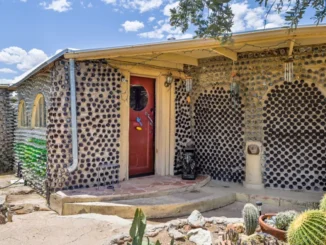
As President Joe Biden prepared to give a speech on his administration’s housing priorities in Las Vegas on Tuesday, some members of the Arizona Legislature and housing advocates in the state were stunned by the decision of Democratic Gov. Katie Hobbs to veto a bipartisan bill that seeks to address the state’s affordable housing issues.
The bill, HB 2570, also known as the Arizona Starter Homes Act, would have created “municipal prohibitions relating to home designs and single-family home lot sizes.” This would bar cities from requiring “certain aesthetic and design features on single-family homes and barred mandates that people form homeowners associations,” according to reporting by Axios.
After passing the Legislature on March 6, lawmakers pressed the governor to sign the bill in the following days, according to local media.
Rep. Analise Ortiz, a Democrat from Phoenix, spoke about her lifelong status as a renter and her inability to afford a down payment on a home, according to Tucson.com.
“In my community, people like me are tired of being told the only way we can have an affordable place to live is if we rent it — and rents are no longer affordable — or if we have government subsidized housing,” she told the outlet. “We deserve that same opportunity to own a home. And the governor needs to recognize that.”
As lawmakers and the wider state awaited the governor’s decision, she chose on Monday to veto the measure.
“Unfortunately, this expansive bill is a step too far and I know we can strike a better balance,” the governor said in a letter to the state House speaker explaining her choice. “This is unprecedented legislation that would put Arizonans at the center of a housing reform experiment with unclear outcomes. It lacks the nuance necessary for statewide reform, and I do not believe it is in the best interest of the people in this state.”
The governor went on to say that the U.S. Department of Defense contacted her office to voice its opposition to the bill, saying it “expressed very serious concerns that the increased density near military installations would put military operations and homeowners at risk,” and explained that firefighters also raised concerns about its provisions.
“[H]undreds of Arizonans and community leaders from across the state have contacted my office about this legislation, with over 90% requesting a veto,” the governor wrote. “Over forty mayors and city council members — Democrats and Republicans from Nogales to Superior to Tucson to Yuma, and every other corner of our state — have expressed concerns about the impacts on infrastructure, water consumption, land use planning, lack of affordability guarantees, and potential legal consequences.”
Hobbs later explained that while she urges community leaders and other stakeholders who expressed their opposition to meet and find new solutions, she doesn’t necessarily see a role for herself at the proverbial table.
“I don’t necessarily think it needs my involvement. They’re the ones most closely involved in this issue,” Hobbs said, according to Axios.
Reactions from lawmakers came swiftly. Rep. Ortiz said that after the veto, she doesn’t know what the governor’s housing plan is. Arizona Senate President Warren Petersen, a Republican, slammed the governor for the decision, according to coverage from a Phoenix-based NBC News affiliate.
“Instead of listening to the citizens, she’s listening to the people who created the problem,” the senator said in a statement, according to the affiliate. “This legislation had strong bipartisan support, and this veto will certainly go down as one of her biggest failures.”
National reactions also included one from Daryl Fairweather, chief economist at Redfin.
“This logic makes no sense to me,” Fairweather said in a post on social media platform X, formerly known as Twitter. “Why is the Department of Defense telling the Governor of Arizona to block zoning for starter homes?”
Gov. Hobbs’ veto bucks recent trends among politicians of her party. Democrats have made housing a centerpiece of their platform heading into a hotly contested election season, most visibly from President Joe Biden and the White House. The president offered a series of housing proposals in his State of the Union address earlier this month.



